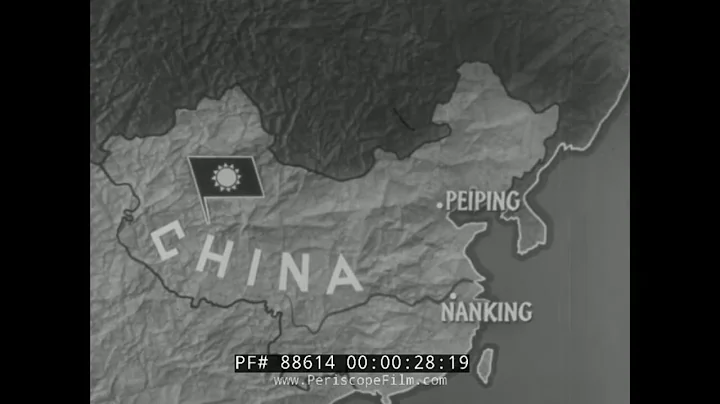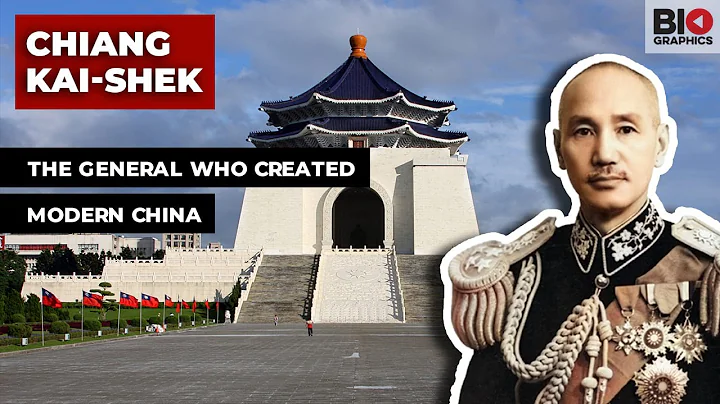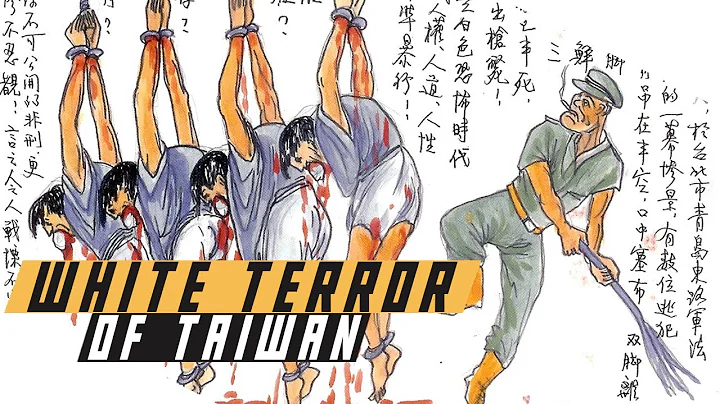
After the Liberation War, the unpopular Chiang Kai-shek was forced to retreat to Taiwan. The Kuomintang has since been entrenched in a corner of the strait, confronting the mainland across the strait. This isolation lasted for 33 years.
Around 1982, Deng Yingchao, who had always paid attention to foreign relations, keenly captured the fleeting opportunity between the two sides of the Taiwan Strait and quickly reported it to Comrade Deng Xiaoping.
has an opportunity, how to seize it?
After many discussions, the Central Committee of the Communist Party of China finally instructed Comrade Liao Chengzhi, the "veteran" of the Communist Party of China, to come forward and send a letter to Chiang Ching-kuo who was far away in Taiwan.

In this letter, Liao Chengzhi used a personal tone to persuade Chiang Ching-kuo to lead the Kuomintang to return to the mainland as soon as possible in order to achieve cross-strait reunification.
However, after this sincere letter was sent to Taiwan, Liao Chengzhi waited and waited, but did not wait for a reply from Chiang Ching-kuo. Instead, he waited for a reply from Song Meiling.
In this letter, Song Meiling's words were harsh, and the lines were full of bitterness and indifference, which chilled the hearts of all who read the letter.
So, why did the central government send Liao Chengzhi to deliver the letter, and what did Soong Meiling write in her reply?

One, Olive Branch
On New Year's Day in 1979, everyone's eyes were focused on a newspaper:
The Standing Committee of the National People's Congress publicly published the article " A Letter to Compatriots in Taiwan " in the " People's Daily ", once again writing to Compatriots across the Taiwan Strait call for peaceful reunification.
In order to express the hope for peace, this article changed the wording in the past, removing the words "liberation" and replaced it with the hope that Taiwan "will return to the embrace of the motherland as soon as possible."
At the same time, the Central Committee of the Communist Party of China also stopped the shelling of islands such as Kinmen and Kinmen that started in 1958 and lasted for decades, showing sufficient sincerity to Taiwan.

At that time, Chiang Kai-shek had just passed away four years ago.
Against this background, this "Message to Compatriots in Taiwan" aroused a lot of noise in Taiwan shortly after it was published.
Many veterans who have roots in the mainland but had to retreat to Taiwan with the Kuomintang have constantly called on the Kuomintang government to open up ways to return to the mainland to visit relatives, "allowing fallen leaves to return to their roots."

However, despite the turmoil within Taiwan, it was not until 1982 that the Kuomintang authorities really showed signs of "relenting":
In July 1982, Chiang Ching-kuo publicly published an article in memory of his father Chiang Kai-shek for the first time.
In the article, Chiang Ching-kuo not only mentioned that Chiang Kai-shek in his later years missed his hometown in Fenghua, but also mentioned Chiang Kai-shek's wish to be buried back in his hometown and his inseparable homesickness.

On the surface, this article is just Chiang Ching-kuo expressing his feelings;
But under the background of the time, the Central Committee of the Communist Party of China was keenly aware that this might be a very good breakthrough:
Through Chiang Ching-kuo's hope that "the fallen leaves will return to their roots" " idea to promote Taiwan's return and achieve the goal of national reunification and common development.

Therefore, shortly after Chiang Ching-kuo’s article was published, the central government made the decision to write a deeply affectionate private letter to Chiang Ching-kuo.
offered an "olive branch" for peace from an emotional perspective, thus convincing him to lead Taiwan back to the mainland.
Since it was necessary to "play the emotional card", it became a must choice for the Central Committee to choose someone who was known to Chiang Ching-kuo and even had a close relationship with the Chiang family in the past to write this letter.
After much thought, Comrade Deng Xiaoping thought of one person, and that was Liao Chengzhi, then leader of the Leading Group for Taiwan Affairs of the Central Committee of the Communist Party of China.

2. Classmate love
Who is Liao Chengzhi? This starts with his father Liao Zhongkai .
As one of the first Chinese people to explore socialist issues in China, Liao Zhongkai and Mr. Sun Yat-sen can be said to have "met each other late".
After the failure of the "Second Revolution" in 1913, Liao Zhongkai and Mr. Sun Yat-sen fled to Japan together, and the two formed a deep friendship.
With the help of Liao Zhongkai, Sun Yat-sen first organized and established the Chinese Revolutionary Party in 1914, and then established a revolutionary government in Guangdong in 1921; Behind the three major policies of "alliance with the Communist Party and support of farmers and workers", there is also the shadow of Liao Zhongkai.

In 1924, Mr. Sun Yat-sen established Whampoa Military Academy in Guangzhou.
As Mr. Sun Yat-sen's "right-hand men", Liao Zhongkai and Chiang Kai-shek gradually became familiar with each other, and the relationship between the Liao and Chiang families also became closer.
However, the good times did not last long. In 1925, Mr. Sun Yat-sen unfortunately passed away, and the Kuomintang immediately split into two parties: the left and the right.
As a pro-communist leftist, Liao Zhongkai naturally became a "thorn in the side" of the rightists, and unfortunately he was assassinated and died;
Shortly after this, the Kuomintang led by Chiang Kai-shek launched a counter-revolutionary coup and massacred revolutionaries.
This made Liao Zhongkai's widow He Xiangning extremely disappointed with the Kuomintang, and finally chose to leave the Kuomintang with her son Liao Chengzhi and go to live in seclusion in the countryside.

However, such grievances and hatreds did not affect the relationship between the two descendants, namely Liao Chengzhi and Chiang Ching-kuo, at that time.
In 1930, when Liao Chengzhi went to the Soviet Union to study and further his studies, he also forged a very deep and sincere friendship with Chiang Ching-kuo:
In that Moscow winter when water dripped into ice, Liao Chengzhi and Chiang Ching-kuo not only often went in and out together, but also supervised each other's progress. In order to save money,
once wore the same coat and stayed up late at night to study together. This also made the two have a close friendship in private.

However, Liao Chengzhi and Chiang Ching-kuo eventually embarked on different paths.
After returning to China, Liao Chengzhi joined the Communist Party of China without hesitation and made indelible contributions to the party's cause and the liberation of the country.
Although Chiang Ching-kuo had learned the new socialist trend of thought in the Soviet Union, he took over Chiang Kai-shek's career after returning to China, and the former friends parted ways.

It is precisely based on this origin that Comrade Deng Xiaoping chose Liao Chengzhi to write this long letter and "play the emotional card", which has become reasonable and reasonable;
As the leader of the Taiwan working group, he learned about the organization After receiving this task, Liao Chengzhi felt that it was his duty to do so and agreed immediately.
At that time, the mainland had already begun to implement the reform of vernacular Chinese and simplified Chinese characters, but Taiwan still followed the old classical Chinese and traditional Chinese characters.
In order to show the sincerity of the Central Committee of the Communist Party of China, Liao Chengzhi specifically chose to use Taiwan's method and wrote a long letter in classical Chinese.

The words between the lines are sincere, not only mentioning the brotherhood between the two in the past, but also extending to issues of nation and homeland, implying that the current relationship between mainland China and Taiwan is like "their brothers":
"We were childhood friends, Su Jing met , the past is still vivid in my mind. However, I have not heard from you for so many years. This is a sincere regret...The peaceful reunification of the motherland is a lasting achievement. Taiwan will eventually return to the motherland. The merits of a thousand years are tied to one thought...I hope my brother will make a good decision. , prepare for a rainy day."
In order to impress Jiang Jingguo, at the end of the letter, Liao Chengzhi also added a sentence in accordance with the instructions of Comrade Deng Yingchao: "Brothers will survive the disaster, and we will forget the grudges with a smile."
He hoped to be able to use it. Such heartfelt words came to impress Jiang Ching-kuo.

Three, reply
In fact, according to the rumors from people around Chiang Ching-kuo, after receiving this letter, Chiang Ching-kuo did remain silent for a long time, with a slightly moved expression
- Did this remind him of the high-spirited days in the Soviet Union? Do you think of those carefree youth days?
No one knows.

This letter, which started with an ordinary greeting about old times, was sent to Chiang Ching-kuo's desk. At the same time, it was also smuggled into Taiwan's newspapers by the Central Committee of the Communist Party of China through special channels.
was published by the local Sing Tao Daily and Overseas Chinese Daily, and soon caused an uproar in Taiwan.
Many veterans who are eager to return home are secretly looking forward to what kind of response the Taiwan authorities will give.

However, for some unknown reason, when faced with inquiries from old friends, Chiang Ching-kuo finally chose to use Taiwan's "Three Nos" policy as an excuse, saying that he could not directly answer the letter from the mainland and needed to ask Soong Meiling for her opinion.
then forwarded the letter to Song Meiling in the United States and asked her to reply to Liao Chengzhi in the name of her elders.
And what is Song Meiling’s attitude?

In fact, because she suffered the "pain" of failure after following Chiang Kai-shek, Soong Meiling was always trapped in resentment towards the mainland and the Communist Party;
Even after retreating to Taiwan, Soong Meiling contacted the forces of U.S. imperialism in the United States many times. , hopes to use the hands of Americans to help the Kuomintang "make a comeback" and "counterattack the mainland."
Unfortunately, in the end, it was still a bamboo basket to draw water from, which also made Song Meiling not have the slightest favorable impression of the mainland.

Therefore, on August 17, shortly after receiving the letter, Song Meiling wrote a reply to Liao Chengzhi. In this letter, Soong Meiling brushed off the politeness and expectations of Liao Chengzhi's letter, and said with malice:
"...Jingguo governs with 'no contact, no negotiation, no compromise', but it is Haoran's righteousness that makes it so Yes. ...However, if I can cherish myself and come back to inherit my father's ambition, I may be able to take part in the work of founding the country. When I return to the mainland, I would like to ask myself. "
Obviously, whether it is to reaffirm the "Taiwan region". "Three No's Policy", or mentioned the so-called "Recovering the Mainland". The condescending and indifferent attitude in this letter all revealed that Song Meiling still had unrealistic illusions about the Kuomintang's "counterattack on the Mainland" deep in her heart. In fact, It's chilling.

Perhaps she is also looking forward to the great cause of the reunification of the motherland, but for Soong Meiling, she and Taiwan, and even some of the conservative senior officials of the Kuomintang she represents, are obviously the so-called "orthodox" of the Chinese nation;
Therefore, Regarding this goodwill released by the mainland, Song Meiling not only rejected it coldly and arrogantly, but also showed complete malice.
This also made the contact between mainland China and Taiwan finally come to nothing...

Four, unification, the general trend
However, although Song Meiling proudly rejected the "olive branch" from the mainland at the time, perhaps as she grew older I began to feel homesick. Perhaps that letter really planted a seed in Chiang Ching-kuo's heart. After that, Chiang Ching-kuo's attitude towards the mainland obviously relaxed:
From Liao Chengzhi's letter until October 1986, Chiang Ching-kuo had continuously sent his emissary Shen Cheng to and from the mainland and Taiwan ports many times in the name of a Hong Kong businessman;
While visiting the mainland, Shen Cheng also went north three times to secretly convey Taiwan's softening attitude to the Central Committee of the Communist Party of China.

On the other side of the strait, the mainland is still making continuous efforts to impress Chiang Ching-kuo and thus promote Taiwan's return.
After learning that Chiang Kai-shek hoped to return to his hometown and be "buried", the mainland also sent people to renovate the Chiang family's ancestral tomb.
and took a large number of new photos, and asked the famous overseas Chinese leader Chen Xiangmei who came to the mainland to pass the photos to Jiang Jingguo, hoping that he would "return to his hometown as soon as possible to have a look."

All this really made Chiang Ching-kuo loosened up.
In 1987, Chiang Ching-kuo ordered the lifting of martial law in Taiwan and allowed veterans to return to the mainland to visit relatives;
Shortly afterwards, Chiang Ching-kuo stated at the end of December that he would select new representatives after the New Year to go to Beijing for cross-strait negotiations.
At that time, when the Central Committee of the Communist Party of China learned about this, Shen Cheng was specially asked to bring a handwritten letter from Yang Shangkun back to Taipei. After reading the letter, Chiang Ching-kuo pondered for a long time and said to Shen Cheng: "I think the CCP is sincere. Yes, this negotiation next year should also be feasible."

It is regrettable that the communication between the people on both sides of the Taiwan Strait was about to get on the right track. However, at the beginning of 1988, Chiang Ching-kuo died suddenly on January 13 due to illness.
The communication between the two sides of the Taiwan Strait was also forced to be interrupted, which was also It became a great regret in the hearts of the people on both sides of the Taiwan Strait.
To this day, the people of Taiwan, led by some stupid politicians, are still "ready to move" on the map of our country
"Taiwan independence" in the name of "for the good of Taiwan." "Those who are actually doing things to split the motherland behind the scenes will definitely not end well in the end.
Whether it is the return of Taiwan or the reunification of the two sides of the Taiwan Strait, these are the general trend, and it is the outcome that people on both sides of the Taiwan Strait hope for.
History The trend is irresistible, and the pace of the great rejuvenation of the Chinese nation is bound to be irresistible
!




















